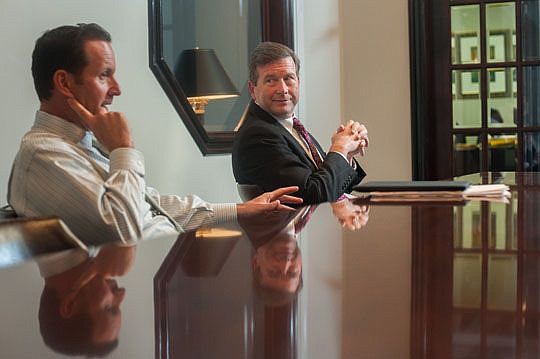
Attorney General Pam Bondi’s office wants the Florida Supreme Court to take up a case involving a prominent Jacksonville lawyer who was charged with racketeering and gambling-related crimes because of his ties to the internet cafe industry.
The 5th District Court of Appeal in October ruled that Kelly Mathis should receive a new trial after being convicted on 103 charges stemming from his work for the group Allied Veterans of the World, which operated dozens of internet cafes that were raided and shut down in 2013 because of illegal gambling.
But Bondi’s office gave notice it will appeal the October ruling to the Supreme Court, according to documents posted Friday on the court’s website.
As is common, the notice does not detail the state’s arguments, though it says the 5th District Court of Appeal’s ruling “expressly and directly conflicts with a decision of another district court of appeal or of the Florida Supreme Court, or both, on the same question of law.”
Before going to the Supreme Court, prosecutors requested a rehearing from the appellate court. That request was rejected Dec. 1.
Internet cafes, which critics derided as “storefront casinos,” offered electronic games that authorities said were akin to slot machines.
Allied Veterans of the World was a major player in the industry, which effectively shut down after the 2013 raids and subsequent changes in state law.
The crackdown also helped spur the resignation of Lt. Gov. Jennifer Carroll, who previously had done consulting work for Allied Veterans of the World.
Mathis, a former president of The Jacksonville Bar Association, was an attorney for Allied Veterans of the World.
But he faced the criminal charges because prosecutors alleged he “knowingly provided false legal advice” about the internet cafes, according to the appeals court ruling.
A Seminole County jury found Mathis guilty of one count of racketeering, 51 counts of conducting an illegal lottery and 51 counts of possessing an illegal slot machine.
But a panel of the appeals court ordered a new trial, saying in part, that a circuit judge improperly prevented Mathis from presenting evidence that could have showed he was doing legitimate legal work — rather than aiding an illegal operation.
“Appellant (Mathis) neither invested in nor received profits from the business,” the appeals court ruling said. “The only financial benefit appellant received from Allied Veterans came from attorney’s fees incurred in the course of representing the organization.
“When Allied Veterans expressed interest in expanding the cafes, appellant undertook additional legal research on the proposed location to ensure compliance with zoning ordinances and other local laws, which included speaking with various local authorities — such as police chiefs and assistant state attorneys,” the ruling continued.
“Prior to expansion, appellant presented Allied Veterans with a report recommending whether it could feasibly open an affiliate in the proposed location,” the ruling said.